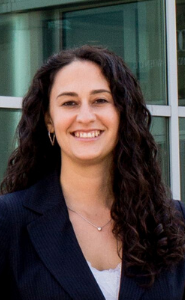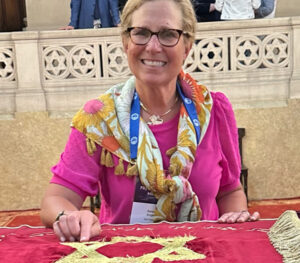Unlocking Tax Advantages with an IRA

Building a retirement nest egg is crucial for long-term financial stability, which is why millions of Americans rely on their individual retirement accounts (IRAs), 401(k)s, 403(b)s and pension plans to maintain their lifestyle in retirement. According to recent data, approximately 36.6 million U.S. households own traditional IRAs. Beyond serving as a retirement savings tool, a traditional IRA can also be an effective, tax-efficient means for charitable giving and legacy planning.
One increasingly popular strategy for charitable giving is the IRA Qualified Charitable Distribution (QCD), also known as the IRA charitable rollover. This option allows individuals aged 70½ or older to transfer up to $108,000 directly from a traditional IRA to qualifying charitable organizations, without paying taxes on the transfer. The donated amount is excluded from both federal and Maryland taxable income, potentially reducing overall tax liability. The QCD is particularly appealing to individuals who regularly donate to charity but do not itemize their deductions. Additionally, because IRA rollover donations lower taxable income, they can help prevent individuals from moving into a higher tax bracket.
Another advantage of the IRA charitable rollover is that it can count toward satisfying an individual’s required minimum distribution (RMD) for the year. For example, if someone’s RMD is $30,000, they could withdraw $20,000 from their IRA for personal use and donate the remaining $10,000 to eligible charities, tax-free.
In addition to the ability to make gifts through a QCD of $108,000 a year directly to charity, IRA owners can make a one-time distribution from their IRA to a Charitable Gift Annuity (CGA) or Charitable Remainder Trust (CRT). This is limited to a maximum of $54,000 in 2025, and although not limited to a single gift, must be completed in a single year and only once during the lifetime of the IRA owner. These must be CGAs and CRTs that qualify for a charitable deduction under current law.
A few things to note about QCDs to fund a CGA or CRT:
- All payments made to annuitants from CGAs funded from a QCD will be fully taxable. This is generally the case for a CRT, but payments from CGA’s funded with after-tax assets are generally partially tax-free, so this is an important difference.
- QCDs may be made to a trust or annuity only if funded only with IRA assets. So existing trusts could not receive additional contributions from IRAs. Only new CRTs would qualify.
- Also, the statute says CGA payments must be at least 5%. This differs from current CGA rules, which set payment based on age and may be less than 5%. Although not an issue today, since CGA rates for those 70½ or older are currently over 5%, CGA rates change with economic conditions, which could be an issue in the future. It does not affect any CGA gifts made now.
- Multiple life payments are limited to the IRA owner and their spouse and must be non-assignable. Payments must begin no later than one year from the date of funding; thus, QCDs cannot be used to fund Deferred CGAs.
Additionally, IRA assets are highly tax-efficient when used for charitable bequests. While IRA assets passed on to heirs are typically subject to tax, those same assets transferred to a charitable beneficiary are entirely tax-free. To designate a charitable beneficiary, contact the IRA custodian to obtain a beneficiary designation form or complete it online.
Since IRA rollover contributions are subject to specific limitations, consulting with a financial adviser or tax professional is advisable to ensure compliance with IRS regulations. Ultimately, an IRA offers a flexible and effective way to make a meaningful charitable impact while optimizing retirement savings.

To learn more about how a QCD, Charitable Gift Annuity, or a Charitable Remainder Trust is right for your clients or how to help maximize the financial and charitable benefits of any such planning strategies available to your clients, contact Jackie Yahr at 410-369-9248 or jyahr@associated.org.
This is for informational purposes only and should not be construed as legal, tax or financial advice. When considering gift planning strategies, your clients should always consult with their own legal and tax advisors.
Subscribe to our newsletter
The Associated is a home for everyone in the Baltimore Jewish community. We offer several email lists to help people find a community, engage with their peers and support Jewish journeys around the world.
Join Our Mailing ListKeep Reading
Add Impact to Your Inbox
Sign up for our newsletter
Subscribe to our newsletter
The Associated is a home for everyone in the Baltimore Jewish community. We offer several email lists to help people find a community, engage with their peers and support Jewish journeys around the world.
Join Our Mailing List



 Please Wait while we loading your video.
Please Wait while we loading your video.